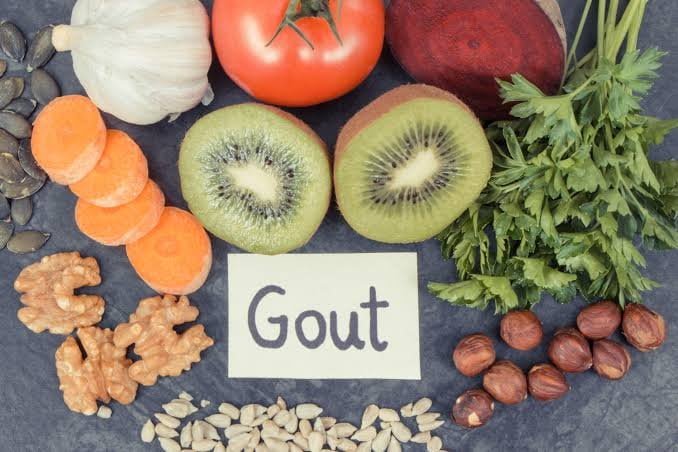What to Eat to Treat And Prevent Gout – Gout is an inflammatory form of arthritis that affects only one joint at a time, most commonly the big toe. It happens when uric acid levels in the blood rise, causing uric acid crystals to accumulate in the joints and other parts of the body.
Swelling, severe pain, as well as redness on and around the affected joint are all symptoms of gout. With medication, gout flares can last anywhere from a few days to two weeks. Gout flares can last weeks or months if left untreated.
Medications, a gout-friendly diet, and lifestyle modifications can all help to control gout.
Gout is an arthritic condition characterized by acute joint pain, edema, and inflammation. The big toes are affected in over half of all gout cases, while the fingers, wrists, knees, and heels are also affected.
When there is more uric acid in the blood, gout symptoms or attacks occur. When the body digests certain foods, it produces uric acid as a waste product. Uric acid crystals might form in your joints if your levels are too high. Swelling, inflammation, and excruciating pain are all symptoms of this procedure.
Also Read: Does Personality Change With Age?

What to Eat to Treat And Prevent Gout – Foods You Should Eat
Even though gout-friendly diet reduces many foods, you can still eat a variety of low-purine meals. Foods with fewer than 100 mg of purines per 3.5 ounces are termed low-purine (100 grams).
The following are some low-purine foods that are relatively safe for people with gout:
1. Fruits: Generally, all fruits are good for gout
2. Cherries: This may help eradicate attacks by reducing uric acid levels and lowering inflammation
3. Vegetables: All vegetables are good, including peas, potatoes, eggplants, mushrooms, and dark green leafy vegetables
4. Legumes: All legumes are good, including beans, lentils, tofu, and soybeans
5. Nuts: All nuts and seeds
6. Whole grains: These include brown rice, oats, and barley
7. Dairy products: All dairy is good, but low-fat dairy seems to be especially beneficial
8. Beverages: Tea, Coffee, and green tea
9. Herbs and spices: All herbs and spices
10. Oils: Including coconut, canola, flax, and olive oils.
Also Read: Top 10 Foods That Burn Belly Fat Fast
Conclusion
Gout diets that are well-balanced will help you avoid attacks while also slowing the course of gout-related joint damage.
The trick is to eat foods that are low in purine, which is a chemical molecule that, when metabolized, produces uric acid, which causes gout attacks. Many foods, such as beer, organ meats, and soda, contain purine, hence they should be avoided.
Healthy foods that aid in the elimination of uric acid are at the heart of a successful gout diet.
All fruits and vegetables, low-fat dairy products, whole grains, eggs, and beverages should be avoided if you have gout.
Non-organ fish and meats such as salmon, should be limited to 4–6 ounces (115–170 grams) a few times each week.




